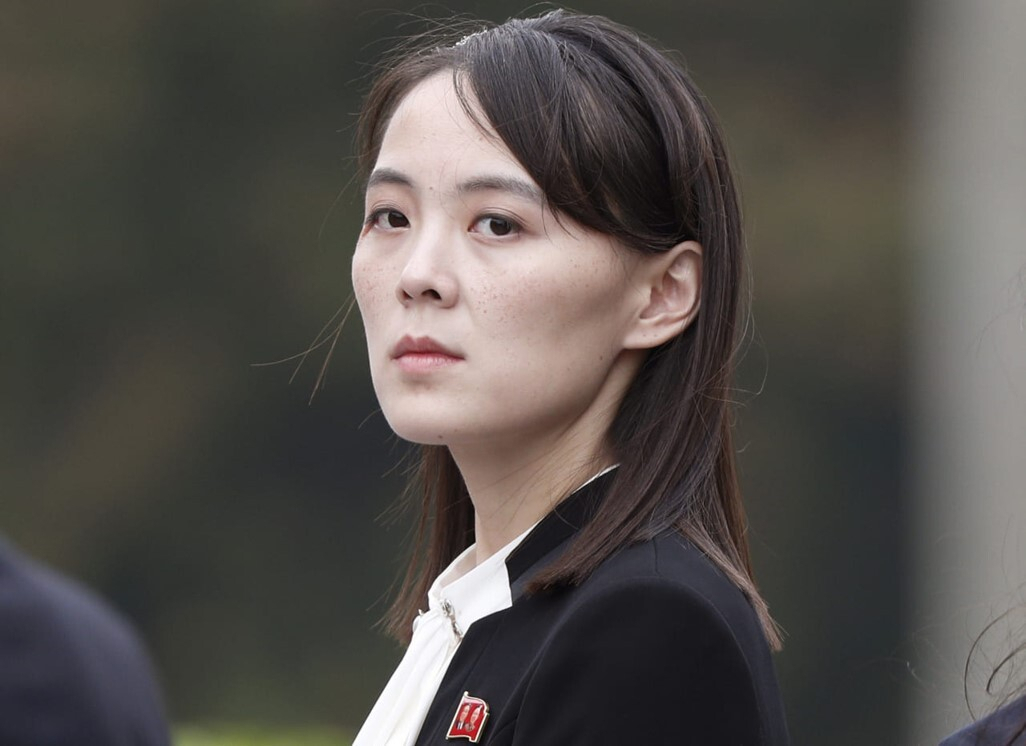NK will never discuss 'sovereignty' with US, says Kim Yo-jong
By Ji Da-gyumPublished : Nov. 30, 2023 - 14:44

North Korea will never discuss its "sovereignty" in negotiations with the United States in any circumstances, Kim Yo-jong, sister of North Korean leader Kim Jong-un, said Thursday in a statement, framing the recent launch of a purported military spy satellite as an assertion of sovereignty.
Kim, vice department director of the Central Committee of the Workers' Party of Korea, denounced Washington for publicly criticizing Pyongyang’s launch of what it claimed to be a military reconnaissance satellite on Nov. 21 at a meeting at the UN Security Council on Monday.
The emergency meeting was held given the launch breached United Nations Security Council resolutions banning the use of ballistic missile technology.
But Kim asserted that the UN Security Council is "transforming into a realm of lawlessness, where the sovereignty of independent states is wantonly violated, extreme double standards are recklessly applied, and injustice and coercion run rampant."
Kim also conveyed a message to the US regarding the timing and agenda for the resumption of dialogue between the two countries, which has been at a standstill since 2019.
"In no circumstances can the sovereignty of an independent state become a subject of negotiation, and consequently, we will never engage in discussions with the United States on this matter," she said in a Korean-language statement.
"We will persist in our efforts to advance all aspects related to our country's sovereign rights, and the Democratic People's Republic of Korea will confidently and unrestrictedly exercise the sovereign rights accorded to all UN member countries."
Kim claimed that the US outwardly advocates for dialogue, yet covertly relies on military power, reaffirming North Korea's hard-line policy on the US.
"If that is the US' preferred 'peace through strength,' we must be prepared for both dialogue and confrontation. Our consistent stance toward the US is to more thoroughly prepare for confrontation."
Kim, believed by the South Korean government to be in charge of external affairs, including inter-Korean relations and relations between Washington and Pyongyang, issued her first statement in around four months. The preceding statement was released on the eve of the first meeting of the Nuclear Consultative Group between South Korea and the US in July.
Yang Moo-jin, a professor at the University of North Korean Studies in Seoul, suggested that North Korea's objective is to undermine the functions of the UN Security Council by portraying it as a platform controlled by the US. This strategic framing aims to establish a justification for evading sanctions.
"(North Korea views) UNSC resolutions currently serve as the sole mechanism capable of exerting pressure on the exercise of its sovereignty. Therefore, the country advocates for the nullification of the UN Security Council, utilizing the influential platform provided by Vice Department Director Kim Yo-jong's statement," Yang said. "North Korea anticipates ongoing efforts in this direction."
Kim's statement also reiterated Pyongyang's position on engaging in dialogue with Washington under specific conditions.
"The statement indirectly suggests a call to abandon the hostile policy toward North Korea first and then consider the prospect of dialogue with the United States afterward," Yang said.
Kim's statement coincides with North Korean state media's ongoing claims of enhanced intelligence, surveillance and reconnaissance capabilities following the launch of the Malligyong-1 military spy satellite.
North Korean state media has claimed that the Malligyong-1 satellite has photographed vital US military bases in South Korea, Japan, and noncontiguous territories such as Guam and Hawaii, as well as the US mainland. However, no photographic evidence has been provided to substantiate these claims.
The North Korean leader received a briefing on Wednesday, reviewing images captured by the satellite on the same day Pyongyang time. The photographs included Naval Base San Diego in California and the US Air Force's Kadena Air Base in Okinawa prefecture, Japan, state media reported Thursday.



















![[Today’s K-pop] Treasure to publish magazine for debut anniversary](http://res.heraldm.com/phpwas/restmb_idxmake.php?idx=642&simg=/content/image/2024/07/26/20240726050551_0.jpg&u=)